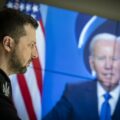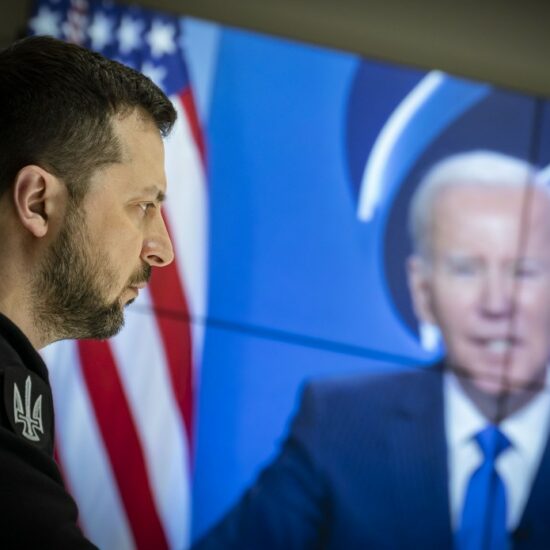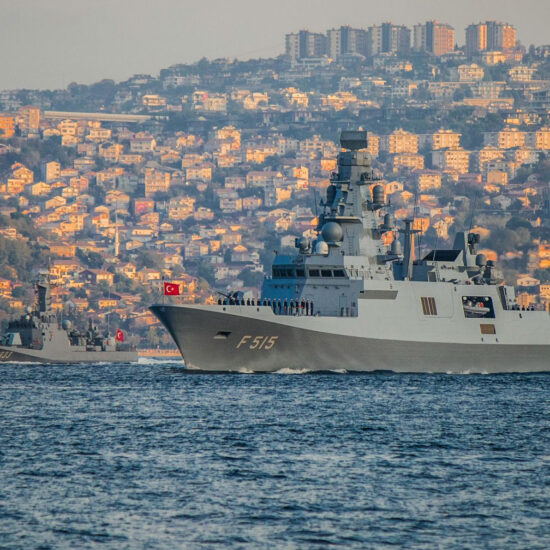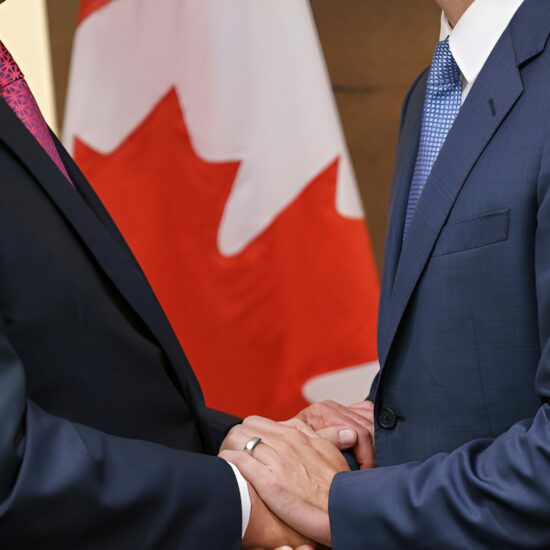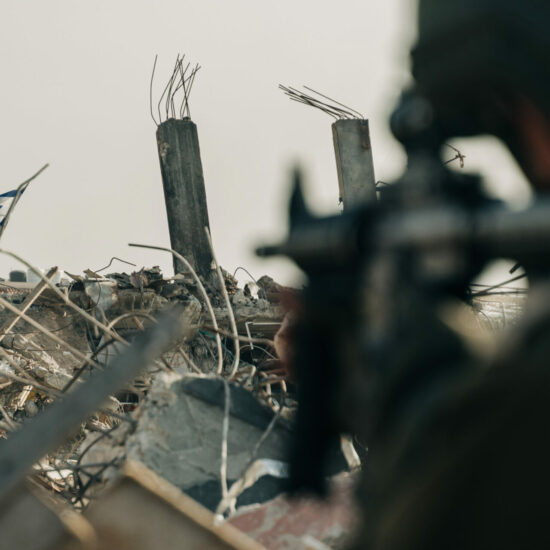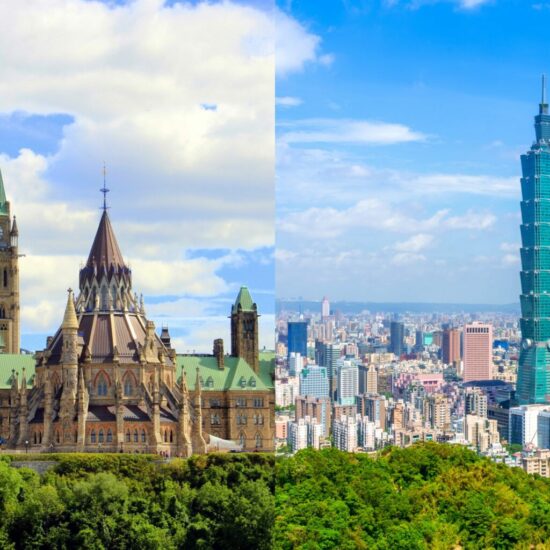
Image credit: Tim Mossholder
This article was first published by Open Canada.
“A shifting international order requires that Canada adjust its understanding of multiculturalism from an inward-focused value to celebrate to an outward-focused cause to rally around.”
This year marks a half-century since Pierre Trudeau announced Canada’s policy of multiculturalism in the House of Commons in 1971. Much has changed in Canada and the world since then. So, too, should multiculturalism’s place and purpose in our national make-up.
Stephen Marche, writing for Open Canada in 2018, explains what makes Canadian multiculturalism unique: In contrast with societies throughout history that have encouraged cultural openness “to find unity, a common humanity, or even a larger truth,” the purpose of multiculturalism in Canada is “diversity for its own sake. Differences are to be respected, not overcome.” Yet the adoption of multiculturalism was not merely about the ideal of ethnic tolerance. Given the political context in which Canada found itself 50 years ago, it was also a policy with pragmatic and strategic aims.
Increasingly, the strategic rationale that initially underpinned Canadian multiculturalism appears outdated, challenged by the arrival of a post-American world and the shift of global power toward Asia. If it is to retain its purpose as a vehicle for advancing the country’s national interests, multiculturalism in Canada must become more than just a celebration of diversity for diversity’s sake. Rather, Canada’s political leadership should reconceive multiculturalism as a core instrument of national strategy aimed at growing our population, increasing our international clout and rebalancing Canadian foreign policy to reduce our current overdependence on the United States.
* * *
When first enacted, multiculturalism allowed Canada to advance two core aims: secure national unity and develop a distinct identity from the United States. These goals have been mutually reinforcing throughout Canadian history. Canada was founded as a political project bringing together conservative British Loyalists and French Catholics in opposition to the liberal universalism expressed by its southern neighbour. Multiculturalism built on both objectives. By promoting the notion that cultural minorities should be accommodated, it fostered a pan-Canadian framework for addressing Quebec’s grievances. It also articulated an image of Canadian society as a “mosaic” — a clear contrast to the American “melting pot.” Yet if these remain the two metrics by which to judge multiculturalism’s effectiveness, then its continued usefulness could be in doubt.
The demographic and economic rise of Western Canada has gradually shifted the structure of Canadian federalism away from its 19th-century, Laurentian-centric compromise of “two founding peoples.” Taking its place is a heavily decentralized federation featuring a system of competing regionalisms. While multiculturalism may still hold a privileged place in the social fabric of the country’s English-speaking provinces, its role in advancing national unity has waned given the nature of Canada’s new political cleavages.
Perhaps more importantly, Canada has become more Americanized in recent decades, not less. The 1990s saw the advent of continental free trade, along with a U.S.-led effort to expand the liberal international order beyond the western Cold War bloc. In both economic and ideological terms, Canada’s dependence on its southern neighbour deepened. The 9/11 attacks reinforced this trend, forcing Ottawa to focus even more vigorously on how to maintain access to the U.S. market at a time when Washington’s pursuit of global hegemony was sharpening through the George W. Bush administration’s “war on terror” and “freedom agenda.” Today, the growth of protectionist impulses within both major U.S. political parties will continue to pull our focus southward, even as the increasingly multipolar character of world politics suggests that our attention should be directed elsewhere.
This process of Americanization has coincided with a period of decline in Canadian foreign policy. Perceived as too close to the United States and not invested enough in key components of multilateralism, Canada has lost not one but two consecutive bids for a UN Security Council seat, even as fellow G7 countries Germany, Japan and Italy continue to serve as non-permanent members with regularity. Relations with major players in some of the world’s most strategically relevant regions — China, Russia, India, Iran, Saudi Arabia and even the U.S. itself — have reached new lows under governments of both stripes. This almost exclusive foreign policy focus on the U.S. border was epitomized in a 2018 episode when Chrystia Freeland — then serving as foreign affairs minister, not minister of international trade — postponed her speech before the UN General Assembly to pursue NAFTA renegotiation talks with Washington.
It is perhaps not coincidental that the past two decades have also been accompanied by the abandonment of Canada’s traditional national unity debates, or by a six-election-long stretch dating back to 2000 in which no federal political party has managed to rally more than 40 percent of the voting electorate behind it. Rather than pursue the lofty but crucial mission of reimagining the future of Canada’s national community, governments have focused on the managerial and mundane task of tending to the continental trading relationship.
As Canada’s interests on the world stage have come to rest disproportionately on the preservation of a stable trading relationship with its southern neighbour, Ottawa’s pronouncements concerning the rest of the world increasingly centre on partisan discourses directed at a domestic audience. This trend began in earnest under Stephen Harper, whose Conservative Party had the targeting of ethnocultural groups for electoral purposes down to a science. It has continued during Justin Trudeau’s tenure, exemplified by Canada’s ill-timed bid for a UN Security Council seat that was aimed more at strengthening the Liberal narrative that Canada was “back” as a multilateral powerhouse than advancing a long-term, non-partisan national aspiration. (Disclosure: I served on that bid in a minor capacity as a speechwriting consultant.) The recent appointment of Marc Garneau as Trudeau’s fourth minister of foreign affairs in just over five years (and Canada’s 14th since 2000) reflects the fact that the position has become more about domestic politics than actually crafting foreign policy. Co-opting foreign policy into a partisan struggle over national identity makes it difficult to assess Canada’s interests consistently, objectively and as ends worthy of being pursued in themselves.
Over the past half-century, Canada has succeeded in fostering internal diversity: welcoming the world within our borders to create a cultural mosaic, yet with the aim of building a society converging around a single set of principles and values. This goal reflected the aspirations of Canada’s population at the time of multiculturalism’s adoption. Canada’s initial settlers from France and the British Isles, as well as subsequent immigrant communities such as Jews, Italians, Germans and Ukrainians, had all left the Old World behind in search of a new beginning. By contrast, today’s immigrant communities — hailing largely but not exclusively from East, South and West Asia — are more cosmopolitan. They are, to a far greater extent than previous generations of newcomers, “at home in the world,” often retaining strong personal and cultural connections to their countries of origin.
Canada’s pursuit of multiculturalism must adapt to new strategic imperatives and the country’s changing ethnic composition. In an increasingly Asia-centric world, this requires Canada to embrace external diversity: marshalling the focus of its diverse population outwards, with the goal of securing a more substantive place in a politically and intellectually diverse Asian region.
For the bulk of the Cold War following the development of intercontinental ballistic missiles, as well as in the immediate post-Cold War years that featured unrivalled American hegemony, a special relationship with Washington and geographic isolation from the rest of the world served as the guarantors of Canadian security. By contrast, in a post-American world framed increasingly by great power conflict, Canadian and American interests are likely to diverge in important ways. In particular, the deterioration of Sino-American relations, now verging on a cold war, threatens the rules-based order and open global trading system on which Canada relies to assert itself as a sovereign international decision-maker. In this context, the struggle for an independent Canadian identity and role in the world will increasingly take place on the world stage rather than at home.
Given the threat posed by the U.S.-China rivalry to Canadian interests, the challenge for Ottawa will be to craft a role for itself as an autonomous, respected and engaged player in Asian affairs. This will require deep, consistent and sustained partnerships with all regional players and a long-term national strategy that transcends partisan politics. It will also necessitate a more active and independent Canadian role in shaping regional trade and security architecture. This does not imply neutrality between the United States and its rivals, merely greater equilibrium in Canadian foreign policy that prioritizes Canada’s unique interests.
In particular, the absence of the United States and India from the region’s two leading trade blocs — the Comprehensive and Progressive Agreement for Trans-Pacific Partnership (CPTPP) and the Regional Comprehensive Economic Partnership — presents an opening for Canada to assert its presence in Asia. Canada’s position as the second-largest economy in the CPTPP leaves it well placed to spearhead efforts to explore ways of harmonizing the two groupings, perhaps along with the Russian-backed Eurasian Economic Union (EAEU). This could reduce the potential for friction to emerge between rival regional orders — a dynamic that came with dire consequences last decade when Ukraine was forced to choose between moving toward the European Union’s regulatory orbit or aligning itself with the EAEU.
Multiculturalism will continue to provide Canada with the right framework for integrating a diverse range of newcomers in a peaceful fashion, growing its population to a point where it can play a more substantive role in securing its national interests and international peace. But a shifting international order requires that Canada adjust its understanding of multiculturalism from an inward-focused value to celebrate to an outward-focused cause to rally around. Much as the 19th-century risorgimento created Italy but not Italians, multiculturalism created Canada out of the ashes of British North America. But what it means to be Canadian beyond being a “kinder, gentler version of the United States” — in other words, not American, but like America — remains unresolved.
Marche’s essay laments that multiculturalism has thus far proven too “polite” and “hesitant” to produce an “art of respectful difference,” contrasting with beautiful artistic forms such as jazz that emerged from the “insistence of personhood” in more unjust societies. Increasing Canada’s international clout in the world’s central strategic theatre will indeed require Ottawa to navigate a region rife with moral ambiguity. Yet if Canada emerges from the coming decades as a leading international player in its own right, unrivalled in the uniqueness of its multicultural social fabric, then it will possess the heft, respect and visibility necessary to contribute to the debate over the nature of justice and tolerance in a diverse world. Perhaps, at that point, Canada itself would embody the art of respectful difference.
Dr. Zachary Paikin is a Nonresident Research Fellow at the Institute for Peace & Diplomacy and a Researcher at the Centre for European Policy Studies in Brussels (CEPS).

